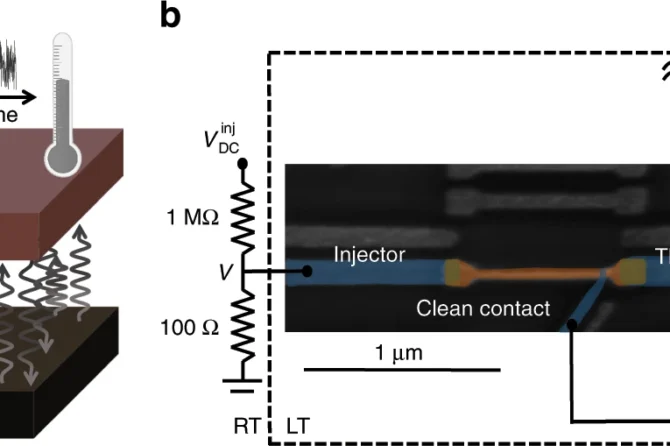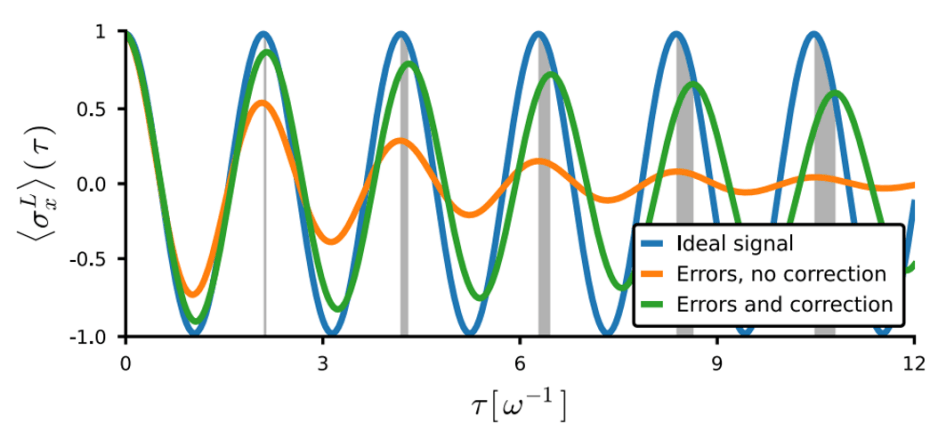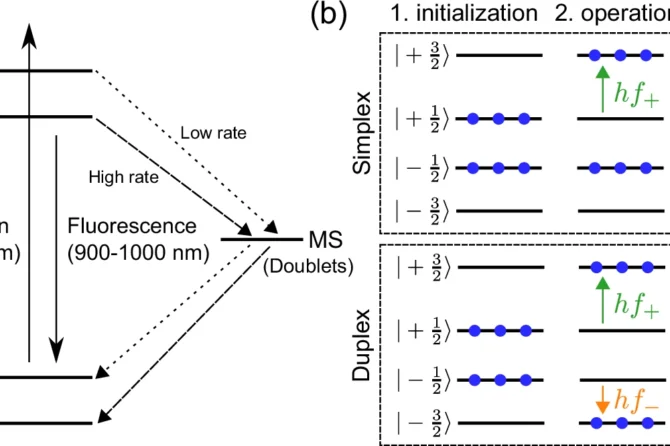The UK Quantum Technology Hub Sensors and Timing is supporting a number of projects as part of the Quantum Technologies for Fundamental Physics programme, delivered by the Science and Technology Facilities Council (STFC) and the Engineering and Physical Sciences Research Council (EPSRC) as part of UKRI’s Strategic Priorities Fund. This is a new programme which aims to demonstrate how the application of quantum technologies will advance the understanding of fundamental physics questions.
The funding is part of a £31 million investment to demonstrate how quantum technologies could solve some of the greatest mysteries in fundamental physics, and the University of Birmingham, lead partner of the QT Hub, is a key partner in three quantum technology projects awarded funding from UK Research and Innovation (UKRI).
The three projects awarded funding are:
Searching for variations of fundamental constants of nature
QSNET is a multi-disciplinary consortium which aims to search for spatial and temporal variations of fundamental constants of nature, using a network of quantum clocks. Led by Dr Giovanni Barontini, from the University of Birmingham, and partnered with the National Physical Laboratory; Imperial College London; University of Sussex; Max Planck Institut fuer Kernphysik; Physikalisch-Technische Bundesanstalt; Istituto Nazionale di Ricerca Metrologica; University of Delaware; University of Tokyo and the Observatoire de Paris. The project, which has received £3.7 million in funding, is also linked to three of the Quantum Technology Hubs in the UK National Quantum Technologies Programme.
QSNET proposes to build a national network of advanced atomic, molecular and highly-charged ion clocks. The network will achieve unprecedented sensitivities in testing variations of the fine structure constant and the electron-to-proton mass ratio. These are two of the parameters of the Standard Model of particle physics, which is the pillar of our understanding of the Universe, but that famously fails to describe 95% of its content: the so-called dark matter and dark energy. QSNET will test the fundamental assumption that the constants of the Standard Model are immutable, as this could be the key in solving the dark matter/dark energy enigma.

Investigating dark matter and detecting gravitational waves
The Atom Interferometer Observatory and Network (AION) is a consortium project comprising Imperial College London, Kings College London, the University of Oxford, the University of Cambridge, STFC Rutherford Appleton Laboratory, the University of Liverpool and the University of Birmingham.
This interdisciplinary team of academics will develop the science and technology to build and reap the scientific rewards from the first large-scale atom interferometer in the UK. This programme of research will enable a ground-breaking search for ultra-light dark matter and pave the way for the exploration of gravitational waves in a previously inaccessible frequency range, opening a new window on the mergers of massive black holes and novel physics in the early universe.
The University of Birmingham team, led by Dr Michael Holynski, Prof Kai Bongs, Dr Mehdi Langlois, Dr Samuel Lellouch, Sam Hedges and Dr Yeshpal Singh will bring their atom interferometry expertise to AION and focus on realising new levels of large momentum transfer to enable the exquisite sensitivity required to achieve the scientific goals of the project, while also providing leadership on the realisation of economic impact.
The AION project, which has been awarded £7.2 million in funding, will be linked to the UK National Quantum Technologies Programme through the UK Quantum Technology Hub Sensors and Timing, led by the University of Birmingham, and project work will be undertaken at the Hub’s Technology Transfer Centre. This will be an opportunity for matter-wave interferometry and strontium optical clocks technology to be developed with industry through to commercialisation.
Quantum-enhanced interferometry for new physics
The Quantum Interferometry (QI) collaboration aims to search for dark matter and for quantum aspects of space-time with quantum technologies. The international QI consortium, led by Cardiff, includes the Universities of Birmingham, Glasgow, Strathclyde, and Warwick in the UK, MIT, Caltech, NIST, and Fermilab in the US, DESY and AEI Hannover in Germany.
QI will build four table-top experiments (two of them in Birmingham) to search for dark matter in the galactic halo, improve 100-m scale ALPS light-shining-through-the-wall experiment at DESY with novel single photon detectors, search for quantisation of space-time, and test models of semiclassical gravity. These experiments will allow us to explore new parameter spaces of photon – dark matter interaction, and seek answers to the long-standing research question: How can gravity be united with the other fundamental forces?
The project is linked to two UK National Quantum Hubs and will apply state-of-the-art technologies, including optical cavities, quantum states of light, transition-edge sensors, and extreme-performance optical coatings, to a broad class of fundamental physics problems. Dr Vincent Boyer, Dr Haixing Miao and Dr Denis Martynov will be leading the £4 million-funded project from the University of Birmingham. Visit QI Labs for more information.
Professor Kai Bongs, Principal Investigator at the UK Quantum Technology Hub Sensors and Timing, led by the University of Birmingham, says: “The UK Government’s investment in these projects enables us to draw together experts in quantum physics research to explore some of the key mysteries of our universe. These projects will allow us to build on the momentum already generated through the Quantum Technology Hubs and build a pipeline feeding novel technologies into the future multi-£bn Quantum Technology economy.”
Science Minister Amanda Solloway said: “As we build back better from the pandemic, it’s critical that we throw our weight behind new transformative technologies, such as quantum, that could help to unearth new scientific discoveries and cement the UK’s status as a science superpower.
“Today’s funding will enable Birmingham’s most ambitious quantum researchers to use the precision of atomic clocks to help solve important unanswered questions about our universe, such as detecting dark matter and understanding the 95% of unaccounted energy content of the universe.”
Announcing the awards, Professor Mark Thomson, Executive Chair of the Science and Technology Facilities Council, said: “STFC is proud to support these projects that utilise cutting-edge quantum technologies for novel and exciting research into fundamental physics.
“Major scientific discoveries often arise from the application of new technologies and techniques. With the application of emerging quantum technologies, I believe we have an opportunity to change the way we search for answers to some of the biggest mysteries of the universe. These include exploring what dark matter is made of, finding the absolute mass of neutrinos and establishing how quantum mechanics fits with Einstein’s theory of relativity.
“I believe strongly that this exciting new research programme will enable the UK to take the lead in a new way of exploring profound questions in fundamental physics.”
Notes to Editors:
For media enquiries please contact Beck Lockwood, Press Office, University of Birmingham, tel: +44 (0)781 3343348.
About the UK Quantum Technology Hub Sensors and Timing
The UK Quantum Technology Hub Sensors and Timing (led by the University of Birmingham) brings together experts from Physics and Engineering from the Universities of Birmingham, Glasgow, Imperial, Nottingham, Southampton, Strathclyde and Sussex, NPL, the British Geological Survey and over 70 industry partners. The Hub has over 100 projects, valued at approximately £100 million, and has 17 patent applications.
The UK Quantum Technology Hub Sensors and Timing is part of the National Quantum Technologies Programme (NQTP), which was established in 2014 and has EPSRC, IUK, STFC, MOD, NPL, BEIS, and GCHQ as partners. Four Quantum Technology Hubs were set up at the outset, each focussing on specific application areas with anticipated societal and economic impact. The Commercialising Quantum Technologies Challenge (funded by the Industrial Strategy Challenge Fund) is part of the NQTP and was launched to accelerate the development of quantum enabled products and services, removing barriers to productivity and competitiveness. The NQTP is set to invest £1B of public and private sector funds over its ten-year lifetime.
About the University of Birmingham
The University of Birmingham is ranked amongst the world’s top 100 institutions. Its work brings people from across the world to Birmingham, including researchers, teachers and more than 6,500 international students from over 150 countries.
About the Strategic Priorities Fund
The Strategic Priorities Fund is an £830 million investment in multi- and interdisciplinary research across 34 themes. It is funded through the government’s National Productivity Investment Fund and managed by UK Research and Innovation.
The fund aims to:
- increase high-quality multi- and interdisciplinary research and innovation
- ensure UKRI investment links up effectively with government research and innovation priorities
- respond to strategic priorities and opportunities
About the National Quantum Technologies Programme
The National Quantum Technologies Programme (NQTP) was established in 2014 by the partners (EPSRC, STFC, IUK, Dstl, MoD, NPL, BEIS, GCHQ, NCSC2) to make the UK a global leader in the development and commercialisation of quantum technologies. World class research and dynamic innovation, as the Government’s R&D Roadmap stresses, are part of an interconnected system. The NQTP’s achievements to-date have been enabled by the coherent approach which brings this interconnected system together. NQTP has ambition to grow and evolve research and technology development activities within the programme to continue to ensure that the UK has a balanced portfolio, is flexible and open, so that promising quantum technologies continue to emerge.
The NQTP is set to invest £1billion of public and private sector funds over its ten-year lifetime.
The post Exploring the unanswered questions of our universe with quantum technologies appeared first on Quantum Sensors.





